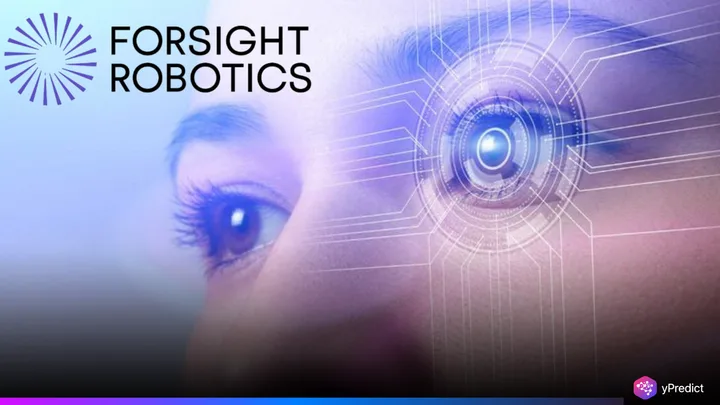
ForSight Robotics, an Israeli medtech startup, has secured $125 million in Series B funding to develop a robotic surgery system that could reshape global eye care. The funding round, led by Eclipse, brings the company’s total to $195 million since its founding in 2020. Based in Yokneam Illit, ForSight plans to relocate to Caesarea, reflecting its rapid growth. Its main product, the ORYOM platform, uses AI-powered robotics to assist with cataract surgery, the world’s most common cause of blindness.
The company now employs 110 people and expects to begin its first human clinical trials this year. With only 30 million cataract surgeries performed annually, far short of the 600 million patients in need, ForSight sees both a problem and an opportunity. By combining robotics and AI, the company aims to fill a critical surgical gap that affects billions.
AI-Powered ORYOM Robot Targets Cataract Surgeries
At the center of ForSight’s effort is ORYOM, a robotic system designed to automate delicate eye surgeries. Unlike traditional manual procedures, ORYOM relies on artificial intelligence and robotic precision to improve surgical consistency and reduce physical strain on human surgeons.
Cataract surgery, where a cloudy lens is replaced, requires extreme precision, something machines can repeat more reliably. “Our goal is to democratize eye surgery,” said a ForSight spokesperson. “Robots don’t get tired, and they can reach places where human care falls short.” The system has already shown promising results in animal trials, allowing the company to move toward human testing this year.
By combining AI algorithms with steady robotic tools, ORYOM helps reduce errors and extends surgical capabilities to regions lacking specialists. That’s especially urgent in low-income countries, where ophthalmologists are few and far between. With the backing of Dr. Fred Moll, co-founder of the da Vinci robotic surgery system, ForSight is building what could become a new standard in ophthalmic care.
A Response to Surgeon Shortages and Rising Demand
The launch of ORYOM comes at a time when eye care needs are rapidly outpacing the number of trained professionals. Globally, there are only 14.1 cataract surgeons per million people. Meanwhile, 2.2 billion people live with some form of vision impairment. By 2035, the ophthalmologist workforce is expected to shrink by 12% even as demand rises by 24%.
Many existing surgeons also face physical burnout. A recent report found that two-thirds suffer from spinal injuries due to hours spent hunched over operating tables. Robotic tools like ORYOM not only reduce this physical toll but also boost productivity. One robot-assisted surgeon can perform more operations without compromising accuracy.
Still, questions remain. Cost and accessibility could slow adoption in low-resource settings, precisely where they are most needed. ForSight will need to prove the platform is affordable and scalable beyond high-end hospitals. The company says its long-term goal is to create portable surgical units that can operate in remote areas with minimal human supervision.
AI Robotics Brings Vision Care Into the Automation Era
ForSight’s entry into the surgical robotics space reflects a broader shift in how AI is used in medicine. While robotic systems have become common in general surgery, eye care has largely remained manual. The ORYOM platform aims to change that. Its use of AI addresses both accuracy and access, two long-standing issues in global eye health. Israel’s growing medtech sector has helped make such innovation possible.
Fueled by defense tech transfers, government support, and a skilled immigrant workforce, the country has become a hub for surgical robotics. If ForSight succeeds, it won’t just deliver better surgeries. It may also offer a blueprint for how to close care gaps in other specialties. As vision loss continues to impact quality of life and economic productivity worldwide, solutions like ORYOM could set a new bar for impact-focused medical automation.






